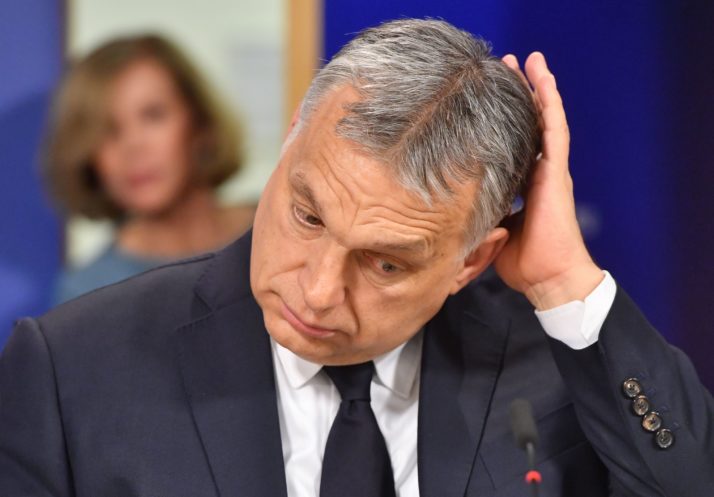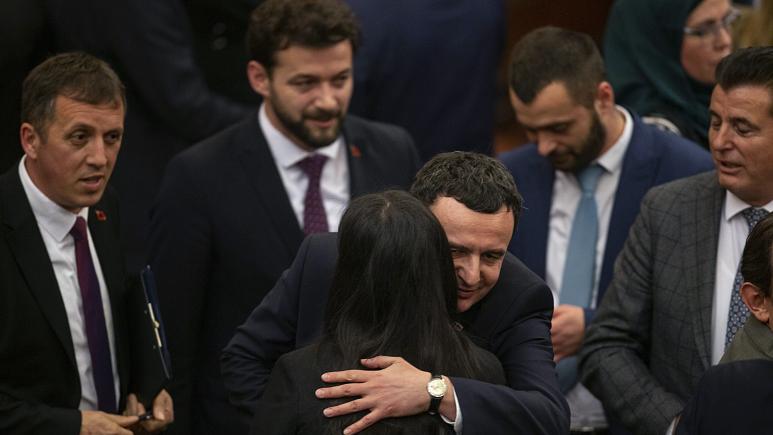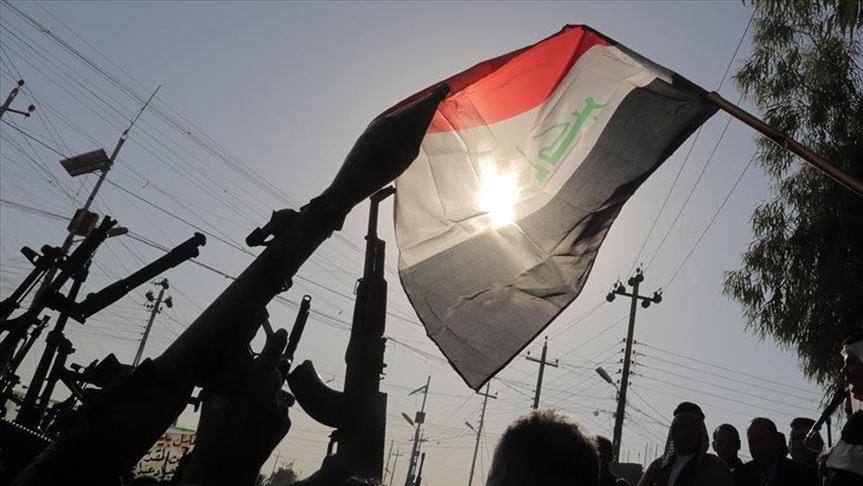
Politico (3 February 2020)
Leaders of the European People's Party on Monday agreed to extend the suspension of Hungary’s ruling Fidesz party indefinitely.
A majority of EPP party leaders who gathered in Brussels for their party’s annual political assembly lent their support to EPP President Donald Tusk’s decision to prolong the suspension of Hungarian Prime Minister Viktor Orbán’s party over concerns about the rule of law in Hungary and anti-Brussels rhetoric.
The decision signals that the conservative political family is continuing to struggle with how to address ideological divisions between its moderate and right-wing factions.
Tusk told the political assembly there was a “need for a deep reflection” and a “new political vision” for the EPP, and proposed holding a special congress on the issue at an unspecified date, an EPP official said following the meeting.
Tusk said there would be “no redefinition of our fundamental values,” the official added.
Many center-right officials have expressed concerns about the situation in Hungary
During the meeting, Tusk also announced he would meet Orbán at the end of February. According to the official, who attended the meeting, there was no vote and leaders expressed their opinions in speeches.
The EPP suspended Fidesz last March and appointed a three-person panel to investigate the situation in Hungary and issue a recommendation on whether the party should be expelled.
EPP officials say the report has not been published because Orbán didn't alleviate concerns about the state of the rule of law.
"Future relationship depends fully on developments in #Hungary," tweeted EPP Vice President Siegfried Mureșan, a Romanian member of the European Parliament, following the meeting. "There can never be compromise on #European and on @EPP values," he wrote.
Many center-right officials have expressed concerns about the situation in Hungary but prefer to see Fidesz remain within the EPP orbit rather than join a rival group.
“There are certain, say, aspects of what the Hungarian government does that I don’t fully understand,” Latvian Prime Minister Krišjānis Kariņš, a member of the EPP, told POLITICO in an interview Monday.
“To argue is easy, but then you always have to think about what are the potential outcomes of that, and is there any gain or benefit to that. And right now I’m personally in the view that it’s always best ... to speak, to try and understand … the thinking we have in our own member states, to raise issues that are of concern, and to try to resolve them,” the prime minister said.
No comments yet.
- BELGIAN MINISTER VISITS IRAQ TO DISCUSS BILATERAL TIES, REGIONAL ISSUES Iraq 04.02.2020
- AUSTRIA AND GERMANY: A HARMONIOUS COUPLE, AT ODDS ON EU ISSUES Europe - EU 04.02.2020
-
 ALBIN KURTI: KOSOVO'S NEW PRESIDENT VOWS TO REBUILD SERBIA TIES
The Balkans
04.02.2020
ALBIN KURTI: KOSOVO'S NEW PRESIDENT VOWS TO REBUILD SERBIA TIES
The Balkans
04.02.2020
-
 SADR’S SUPPORTERS OPEN FIRE ON PROTESTERS IN IRAQ
Iraq
04.02.2020
SADR’S SUPPORTERS OPEN FIRE ON PROTESTERS IN IRAQ
Iraq
04.02.2020
- US SECRETARY OF STATE POMPEO REAFFIRMS STRATEGIC PARTNERSHIP DURING TRIP TO KAZAKH CAPITAL Central Asia 04.02.2020
-
25.01.2016
THE ARMENIAN QUESTION - BASIC KNOWLEDGE AND DOCUMENTATION -
12.06.2024
THE TRUTH WILL OUT -
27.03.2023
RADİKAL ERMENİ UNSURLARCA GERÇEKLEŞTİRİLEN MEZALİMLER VE VANDALİZM -
17.03.2023
PATRIOTISM PERVERTED -
23.02.2023
MEN ARE LIKE THAT -
03.02.2023
BAKÜ-TİFLİS-CEYHAN BORU HATTININ YAŞANAN TARİHİ -
16.12.2022
INTERNATIONAL SCHOLARS ON THE EVENTS OF 1915 -
07.12.2022
FAKE PHOTOS AND THE ARMENIAN PROPAGANDA -
07.12.2022
ERMENİ PROPAGANDASI VE SAHTE RESİMLER -
01.01.2022
A Letter From Japan - Strategically Mum: The Silence of the Armenians -
01.01.2022
Japonya'dan Bir Mektup - Stratejik Suskunluk: Ermenilerin Sessizliği -
03.06.2020
Anastas Mikoyan: Confessions of an Armenian Bolshevik -
08.04.2020
Sovyet Sonrası Ukrayna’da Devlet, Toplum ve Siyaset - Değişen Dinamikler, Dönüşen Kimlikler -
12.06.2018
Ermeni Sorunuyla İlgili İngiliz Belgeleri (1912-1923) - British Documents on Armenian Question (1912-1923) -
02.12.2016
Turkish-Russian Academics: A Historical Study on the Caucasus -
01.07.2016
Gürcistan'daki Müslüman Topluluklar: Azınlık Hakları, Kimlik, Siyaset -
10.03.2016
Armenian Diaspora: Diaspora, State and the Imagination of the Republic of Armenia -
24.01.2016
ERMENİ SORUNU - TEMEL BİLGİ VE BELGELER (2. BASKI)
-
AVİM Conference Hall 24.01.2023
CONFERENCE TITLED “HUNGARY’S PERSPECTIVES ON THE TURKIC WORLD"









